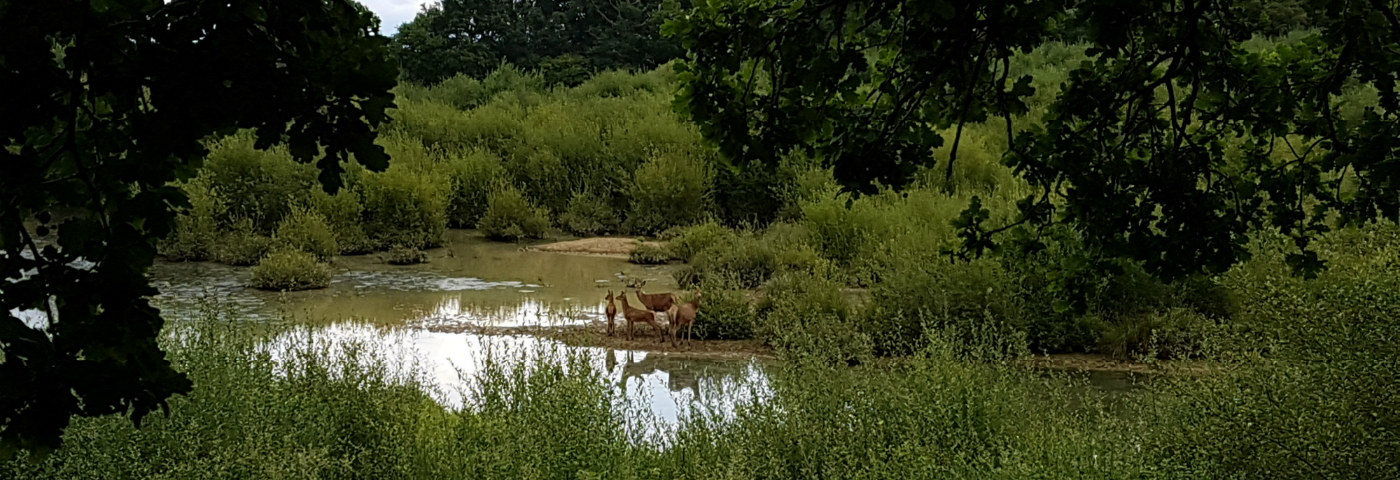Last week I spent an afternoon training my binoculars on a field of cows. I got very excited by the sight of some pigs walking down a lane. Then had my first encounter with the snakelike (but not a snake) legless lizard, the slow worm. All of this took place just a few miles from Gatwick Airport.
I was on a 3 hour afternoon safari around Knepp, a 2500 acre estate, that for the past 20 years has been developing one of the most inspiring examples of the emerging practice of rewilding. Over this time they have allowed nature to take over what was formerly a fairly typical – if not economically successful – English farm with the aim of allowing the land to return, as much as is possible, to the state it was before agriculture changed it forever. They have reintroduced certain herbivores that resemble the wild boars and aurochs that roamed the countryside, along with Exmoor ponies, which have always lived wild on these West Country moors.
Over the years, the presence of the wild herbivores, who attract insects and turn over the soil rootling around for food, combined with a lack of human intervention in what grows, has changed the way the farm looks. Wildflowers are everywhere. Birds, butterflies and other wildlife return to Knepp. There are more purple emperor butterflies here than anywhere else in Britain. It’s the only place in the country where the numbers of turtle dove is increasing. There are endangered nightingales nesting in the hedregrows, along with hobbies, peregrine falcons and three types of owl. I saw an owl there sitting on a branch, at around 3pm. I have never seen an owl in the daylight in the UK before.
It’s now a successful ecotourism business. There are camping and yurts on site. Anyone staying can walk in the grounds, where they are likely to encounter the pigs, deer or other species. Or people can join in a range of safaris.
I spend a lot of time in South Africa. I am married to a former resident of Johannesburg, and much of my wife’s family still lives there. When there, we always spend some time on safari. I am not going to suggest that watching the cows was as awe inspiring as seeing elephants… but it was a short train ride from my London flat.
The more time I spent observing the behaviour of these animals, the more I shook off my associations of them with the animals I see on farms. Especially the pigs – whom we encountered running through the trees and undergrowth. I realised how these beautiful russet creatures were no less fascinating than warthogs, whom I can watch for ages. The red deer were as noble as eland, the roe as skittish as impala. And I will go back just to watch a purple emperor butterfly chase birds.
In the UK, tourism already generates more revenue and provides more employment for people living in the countryside than farming – £18.6bn for the rural economy and 340,000 full-time jobs. And it is a growing market across the continent. Nature tourism in Europe is increasing at six times the rate of tourism overall.
Of course, rewilding offers much more than a boost to our economy. It gives us a way – through pleasure and discovery – to reacquaint ourselves with the natural world.
*Rewilding is large-scale conservation aimed at restoring and protecting natural processes and core wilderness areas, providing connectivity between such areas, and protecting or reintroducing apex predators and keystone species.




